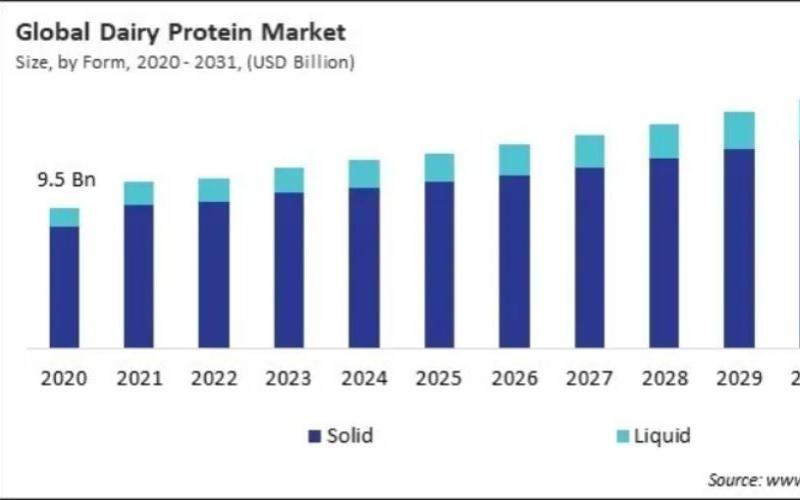A Global Protein Deficit Looms: A Key Opportunity for Dairy
Sourse: es.edairynews.com
With projections of a global protein deficit, dairy products emerge as strategic players in global food security.

During the World Dairy Summit 2025 in Chile, Cooprinsem's president, Arturo Gebauer Bittner, issued a stark warning: "The world will face a 70% shortfall in protein by 2050." This alarming prediction places dairy products in a strategic position within global food security, highlighting the reevaluation of animal-sourced protein—particularly dairy products—and underscoring the need for producers and the supply chain to ensure consumers understand they are consuming a product of "excellent quality."
Why the Projected Deficit Affects the Dairy Sector?
- Growing Demand for Protein: Population growth, urbanization, and changing dietary habits are increasing pressure on global production of high-value nutritional foods.
- Dairy as an Efficient Solution: Dairy products can efficiently convert raw materials into quality protein, positioning them as a crucial alternative.
- Opportunities for Value Addition: It's not just about producing milk liters but creating protein-rich dairy products with functionality and premium positioning to better capture future demand.
Importance of Trust and Quality: As Gebauer notes, the industry must convey to consumers that they are ingesting "excellent quality" products while reinforcing traceability and safety in the dairy supply chain.
Implications for the Regional Industry
For Latin America's dairy sector, this projection brings significant implications:
- Opportunity: The global deficit opens doors for external markets or niche dairy protein markets if the sector is prepared.
- Challenge: It demands modernization, genetic improvement, nutrition, efficiency, and logistics to meet demand and ensure competitiveness.
- Strategic Call: Producers, cooperatives, and the transforming industry must plan to participate in the future not only in volume but also in quality, branding, and added value.
Ultimately, the "70% less protein by 2050" message should not only be read as an alert but also as a strategic signal for the dairy sector to position itself in advance.










